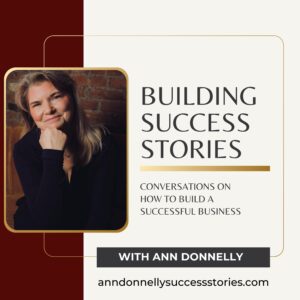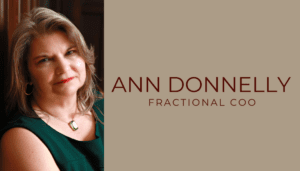 Usually I am tweeting about bad email marketing examples I see in my Inbox, but today I am delighted to share a good example!
Usually I am tweeting about bad email marketing examples I see in my Inbox, but today I am delighted to share a good example!
I coach my clients to plan interactions with their prospects and customers (whether by email, phone or social media – depending on the situation) at many points along the way: first interaction, meetings (planned or casual), point of sale, after sale and hopefully return business. Email marketing is a great tool for after sales follow-up.
I booked a hotel stay via SuperValu Getaway Breaks and the day after my return, I received an email “Welcome back – we hope you enjoyed your break”. It was personalised (nearly) perfectly with my name, address and the location of my break. It ended with a nice “We hope to see you again soon”.
The downside is that the body of the message boringly recapped the way the Getaway Breaks programme works, which I know because I just went on one. OK, I said ‘good example’ not ‘perfect example’.
How could this have been a perfect follow up?
- Invite me to their Facebook Page, which I know they have, and any other social channels they may have, to comment about my trip, maybe even post pictures, etc.
- Give details about some of the other breaks on offer for Easter, Summer, etc. that I may be starting to plan for now for return sales opportunities. If you are selling a product this is a good chance to sell accessories and other related or similar products, etc.
- Ask if I had any feedback — link to a survey or feedback form. Your customers want to be heard and want to think that you care about how they feel about your business. Even though they know that, really, your priority is to get more business from them; they are more likely to give business to a company that takes on board their feedback.
Many businesses don’t ask for feedback because they are afraid of what they’ll hear or assume that people will tell them without being asked, but in most cases if you don’t ask you won’t get it. I stayed in a hotel last week and I filled out 3 different comment cards that were provided to me — with positive and negative, but honest, feedback on the hotel in general, the spa, restaurant, etc. (As a person who works in customer service and who deals with hotel owners and management, I know that they do want to get the feedback directly so was thorough in my comments.) For the trip related to this email, I provided no feedback to the hotel. There were no cards supplied and no follow-up email, yet.
The main reason for asking for feedback early on, is so that you can address any bad points early on — before they make it on TripAdvisor, some other review website or all around town – or social media channels – via word of mouth.
Because SuperValu Getaway Breaks has all customers in their database with contact details and dates of breaks, it is easy for them to automate this kind of follow-up. Smaller businesses may have to do this manually, but as it is easier/cheaper/more effective to market to existing customers so very much worth doing manually or setting up an automated system.
Get the wording and tone right. Don’t appear greedy or that you are sending this just to sell, sell, sell. By asking to post on Facebook or complete a survey, you have a good excuse for getting in touch.
Get your timing right. In this case I thought it was nice to get the message the day after my return and, if they asked for feedback or had a survey, the information would be fresh in my mind. Their push for me to book more breaks when I still haven’t unpacked from this one is a bit lost at this point. Another email in a few months — or if they had enticed me specifically for a break in the future, I may have had a look at the site. If you are selling a product that wears out or offers an upgrade, these are good times to follow-up. The timing will depend on your product/service and your clients. As I always say, you need to know your target market and what is right for them.
Regular newsletters or newsletters that you publish when you have news or special offers can do very well for you, but an email that is perfectly timed based on customer/prospect interactions will be the best tool for for your business as it will work much better at building community, getting feedback and driving repeat sales.
Do you use email marketing for after sales follow-up? or other events related to specific interactions with your clients? What system do you use to automate these messages?


